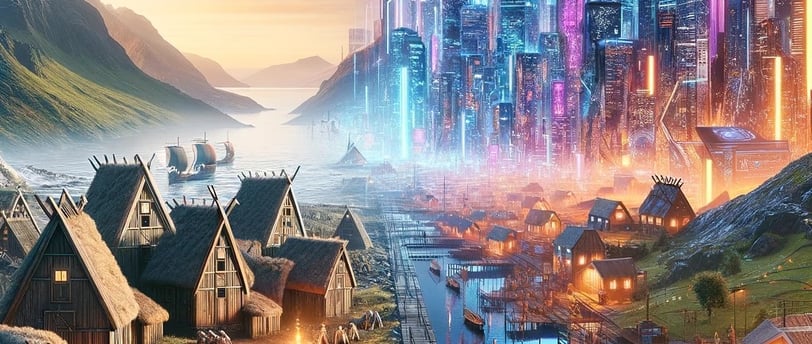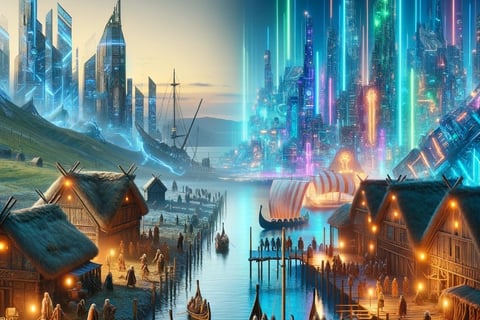Greenland
The World's Largest Island and Its Untold Story
STORIES


Greenland's Enigmatic Past
Greenland, often visualized as an icy wilderness at the mercy of Arctic winds, harbors a history as rich as it is complex. It's not just a white patch on the map but a significant part of human history.
The Early Settlers
In 982, the Norse explorer Erik the Red, exiled from Iceland, discovered Greenland, naming it 'Grönland' or 'Green Land.' By the year 1000, hundreds of Icelanders, along with their livestock, had settled in Greenland, trading seal skins and walrus tusks with Norway and Iceland for food and iron tools.
Colonial Era and the Inuit People
Greenland fell under the Denmark-Norway realm in 1380. However, by this time, the Norse villages were in decline. The Danish attempted to re-establish contact, leading to the eventual settlement of Hans Egede in Greenland in 1721. Contrary to Egede's expectations of finding Norse descendants practicing Catholicism or paganism, he encountered the Inuit people. The Inuit, meaning 'the people,' replaced the misnomer 'Eskimo' and had thrived for centuries on hunting and fishing.
Cultural Transformation and Danish Rule
Under Danish rule, Greenland witnessed significant cultural changes. Efforts to convert the Inuit to Christianity, introduce new housing styles, and elect community representatives reshaped traditional Inuit society. By 1856, Denmark asserted its control over the entire island, further integrating Greenland into European economic models, albeit with discriminatory policies.
The 20th Century: War and Modernization
During World War II, Greenland played a strategic role, with the US establishing military bases on the island. Post-war, the US continued to leverage Greenland for its geopolitical significance and resources. This period also saw forced relocations of Inuit communities and environmental disruptions due to military activities.
Greenland Today: Autonomy and Challenges
In 1953, Greenland became an autonomous Danish province, leading to the G50 and G60 development plans, which aimed at modernizing the island's fishing industry and urban centers. While these plans improved living standards, they also led to economic disparities and social upheaval. Issues like alcoholism, rapid social evolution, and forced urbanization from traditional hunting grounds to factory jobs have significantly impacted Inuit society.
The Quest for Reconciliation and Identity
In 2014, the Greenlandic government formed a reconciliation commission to address the colonial past and its lingering effects on Inuit society. Today, Greenland navigates complex social issues, balancing traditional ways of life with modern challenges, and carving out its identity in the 21st century.
Greenland at the Crossroads
As Greenland stands at the forefront of climate change and global political intrigue, its future is more uncertain than ever. The island's ice sheets and strategic location make it a focal point in global discussions on environmental and geopolitical issues. The story of Greenland is a tale of resilience, adaptation, and the enduring spirit of its people in the face of centuries of change.



